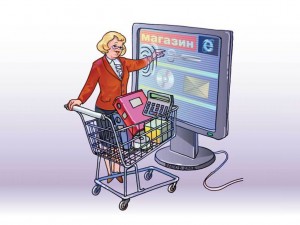New e-commerce rules: a lawyer’s opinion

On June 3, the Ukrainian parliament in the first reading passed a legislative novelty — the Law on Electronic Commerce. Among market participants this news was mostly perceived positively, since the provisions of the law legalize practices already used by online stores for a long time.
rn
The most important event was equating the electronic transaction with the traditional one. The law also pays attention to the protection of consumer rights. So, what will sellers and buyers get from online trade under the new rules?
At one of the numerous seminars organized for young entrepreneurs, a question was asked: “When was the decision made that operations conducted online are subject to taxation?” The person who asked the question was convinced that everything that happens online is not regulated by current legislation. Yes, he was wrong, but indeed, previously Ukraine lacked special legislation regulating business relations online. And only now has the bill passed the first reading. It had been in the making for almost a year, and after it receives the status of law we can expect many new things.
Now a method of confirming registration on a website, such as using your email, is equated to signing. What changes because of this? Today, almost all websites offer to confirm registration from your mailbox or phone. But a purchase agreement has been considered concluded only from the moment of receipt of the goods or their payment. Until that moment the contract seemingly does not exist: you are not a buyer, the online store is not a seller, and if one of the parties is dissatisfied or decides to withdraw from the transaction, that party bears no liability for breach of the contract terms. And there is no one to make claims to. The courier arrives, you look at the product and don’t take it — you simply don’t need it. Or, conversely, the courier hands over the goods and an invoice for an amount larger than on the website. Under the new law, order confirmation is identical to signing the contract, and the parties acquire concrete obligations for whose non-fulfillment sanctions are provided. That is, an electronic transaction is now considered a transaction made in writing with all the ensuing consequences.
But there is a flip side. You should not only study the product specifications but also the terms of the transaction, because by confirming the order you automatically agree to the contract terms, even if you didn’t read them.
The adoption of the bill implies making changes to a number of existing laws, including the Civil Code. Contract conclusion may become possible via a simple exchange of electronic mails. And at first this may lead to the emergence of many pseudo-transactions concluded in someone else’s name. Naturally, they will be contested in court. And until generalized judicial practice and special clarifications appear, disputes will be resolved differently, since judges are accustomed to reading the letter of the law, which does not give a full picture of the process of proving in the field of application of new technologies.
Another novelty of the bill is allowing legal entities to make purchases on the Internet without drawing up a written contract, and at the same time to issue primary documents in electronic form. The mechanism for working under such a scheme has not yet been explained to accountants, and it is not entirely clear how regulatory authorities, first and foremost the tax office, will regard this.
This bill does not have a clear circle of respondents; it explicitly states that the composition of participants in electronic commerce directly depends on the level of technology development.
According to experts, the bill is being introduced to catch up with relations that are already in effect and are so far regulated only by analogy.
